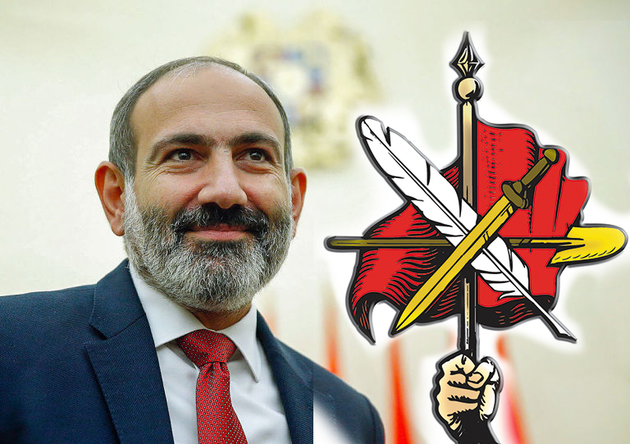In Armenia, an agitation campaign is in full swing ahead of the referendum, which should decide the fate of the members of the Constitutional Court. The referendum, scheduled for April 5, aims to update the judiciary of the Constitutional Court. For Prime Minister Nikol Pashinyan, this is the first major public confrontation with one of the opposition forces, which openly criticizes the policy of the “People’s Prime Minister.”
So far, Pashinyan managed to get out of the conflict with insignificant image losses due to his popularity and high level of public trust. However, the current campaign is stalling, as every day in the political space there are more and more doubters about the legitimacy of the upcoming referendum. Pashinyan himself is not completely convinced of the outcome of the will, since time is running out, tension is growing, and questions are not becoming smaller. It is not possible to predict what will prevail in the minds of the public — emotions or political literacy — because everything can change literally at the last moment.
Therefore, in all likelihood, Pashinyan is ready to cooperate with certain political forces, with which he tried not to agree once again a year ago. We are talking about the ARF "Dashnaktsutyun", with members of which on March 6 Pashinyan held secret negotiations. The Armenian media learned about this from the new press secretary of Pashinyan Mane Gevorgyan.
Why Dashnaks
The logic of the prime minister is clear. The Dashnaks, despite their semi-underground existence, maintain stable internal political relations in Armenia, have significant political resources and maintain strong ties with the diaspora. Dashnaks at different times were prohibited and allowed, cooperated and were in opposition to the previous regimes. Even the Pashinyan ARF is neutral, because he tried on the image of a “people's revolutionary”, which the Dashnaks consider themselves to be.
"Dashnaktsutyun" is an example of Armenian politics, when the "heroic" past frees from all responsibility. No political assimilation is possible in presenting modern Dashnaks convinced of the continuity of traditions and ideology of the first Armenian socialist revolutionaries. They were not the backbone of the same "Karabakh clan", because they preferred a semi-marginal position in the political space.
Pashinyan wants to use this, because the referendum will be held under the flag of liberating Armenia from the vices of the previous regime. That reactionism, which the Dashnaks can provide, correlates with the heroic symbols and images in the mentality of modern Armenian society, and can allow holding a referendum in the atmosphere necessary for Pashinyan.
What can the Dashnaks offer Pashinyan
The Dashnaks are interested in accessing the very specific levers of governing the republic. Pashinyan may propose creating a joint, albeit short-lived, coalition in parliament. This will strengthen the political position of the ARF, especially since a similar step was already considered in the spring of 2018. Then, following the results of early elections, the Dashnaks did not go to parliament, having lost their seven seats.
The second option: the prime minister will consider the candidacies of ARF members for a number of posts in the structures of ministries, which are still being reformed. Of course, Pashinyan will not appoint unverified people to key posts, but demonstrative appointments to small and medium ranks in the field of environment, education, culture and sports are quite acceptable.
Finally, do not lose sight of the future composition of the judges, since it is not yet known who will replace the current members of the Constitutional Court. It is only clear that judicial reform will rejuvenate the judiciary. The age limit of candidates will be reduced to 25 years. If Pashinyan and "Dashnaktsutyun" find a common language and use their entire political resources, then it is quite possible that there will be places in the Constitutional Court for people who are somehow connected with the ARF. Pashinyan seeks to convince the public of the "nationality" of the referendum, although his legitimacy is strongly criticized, including in the West. Even if there are no vacant seats in the Constitutional Court, dashnaks may be offered membership in the Ethics and Disciplinary Commission or in the Judicial Performance Assessment Commission, which is proposed to be created.
Pashinyan fears active opposition interference in the referendum, and therefore maneuvers between opposition blocs. Now diametrically opposite approaches are indicated in the opposition camp. Someone believes that one should not participate in agitation, so as not to legitimize the anti-constitutional process with their participation. Someone, on the contrary, is eyeing what is happening, hoping in case of Pashinyan’s failure to seize the political initiative.
In any case, such processes are, first of all, a test for the entire political system of Armenia, where the government will either lose or strengthen confidence in itself, and the opposition will demonstrate its real potential or its immaturity.






